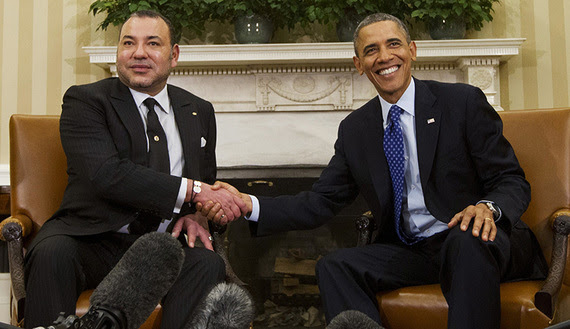The National Interest
J. Peter Pham
It is written in the Book of Proverbs that “Faithful are the wounds of a friend.” In other words, a true friend will tell another unpleasant truths, conveying things the other may not want to hear, but doing so for the sake of the other’s own good, which is valued more than even the friendship itself. However, this wisdom is predicated on the assumption that what is communicated is itself objectively true and not based on bias, much less animus.
The furor that has erupted in Morocco over its entry in the US State Department’s Country Reports on Human Rights Practices for 2015, published in April, raises the question of whether the document falls into the latter, rather than the former, category.
On May 18, the US Ambassador to Morocco, Dwight Bush, was summoned to the Ministry of Foreign Affairs in Rabat to receive a formal protest, a rare rebuke from the North African kingdom that was the first sovereign country to recognize the independence of the United States, has had the longest unbroken treaty relationship with Washington, and is one of only three African states to be designated a “major non-NATO ally” of the United States.
According to a statement by the Foreign Ministry’s spokesman, the ambassador was called in by Deputy Foreign Minister Nacer Bourita who, in the presence of Mohamed Yassine Mansouri, head of Morocco’s intelligence agency (DGED), denounced the “deceptive content” of the report. Specifically, the minister cited three cases that highlighted “the clear manipulation and blatant factual errors that tarnish the State Department’s report.”
The ministry’s statement gives detailed responses to each of these cases, but the third case is illustrative of what aggravated the Moroccans. The State Department report cited the following as an example of Internet censorship:
On June 29, a Casablanca court sentenced Hamid El Mehdaoui, editor of the news website Badil, to a four-month suspended sentence for allegedly defaming the head of the General Directorate of National Security [DGSN], Abdellatif el Hammouchi. El Mehdaoui had published an article about the death of Karim Lachaqr, an activist who died in police custody in May 2014. The court ordered both him and his source (not a journalist) to pay combined damages of 100,000 dirhams ($10,050) or face imprisonment.
In reality, Hammouchi was only appointed head of the DGSN by King Mohammed VI on May 15, 2015, so he could not have been responsible for the alleged death in police custody the year before. Moreover, he had not yet assumed his post when the matter of Mehdaoui was disposed by the courts. In fact, it was the previous head of the security agency, Bouchaib Rmil, who, on June 4, 2014, filed the court case against the blogger for making false claims. That the writers of the report couldn’t get such basic facts right raises significant questions about either their competence or their good faith—if not both.
In fact, a closer examination of the report on Morocco shows just how much effort its writers put into it. It is rather telling that, of the 355 words in the executive summary for 2015, 272 are cut and pasted directly from the report drawn up for 2014—and 231 of the latter were lifted verbatim from the report for 2013. So much for providing the speaker of the House of Representatives and the Senate Committee on Foreign Relations with an up-to-date, “full and complete report regarding the status of internationally recognized human rights” for the preceding year as required by law.
Even more damning are the omissions. Somehow, the diplomats responsible for the Morocco report didn’t think it was worth noting that on July 1, 2015, a law passed by the Moroccan parliament and promulgated by the king took effect that banned the trial or referral of civilians to military tribunals. This was a reform long sought by human rights campaigners in the country and endorsed, since 2013, by Morocco’s National Council on Human Rights (CNDH).
Instead of highlighting this advance, which drew praise from the International Commission of Juristsat the 28th session of the United Nations Human Rights Council in January of last year, the authors of the State Department report concerned themselves with bemoaning “the lack of citizens’ ability to change the constitutional provisions establishing the country’s monarchical form of government.” That the American authors identified that grievance as the first of “the most significant continuing human rights problems” in the country (followed by alleged corruption and disregard for the rule of law by security forces) may well have been a Freudian slip.




